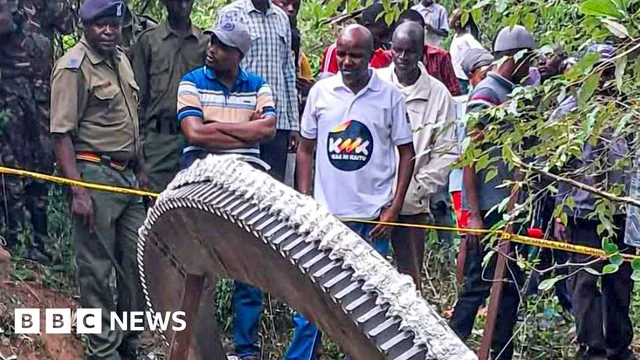
Falling debris from Elon Musk’s SpaceX rockets is causing flights to be delayed across the world
2025-01-14 15:40- Flight disruptions are currently affecting multiple airlines due to space debris from re-entering rockets.
- In Kenya, a metallic ring from a rocket prompted local fears and required investigation by space authorities.
- These incidents highlight ongoing challenges related to space debris management and its impact on real-world activities.
Express your sentiment!
Insights
In recent weeks, flights between Johannesburg, South Africa, and Sydney, Australia have faced significant delays due to falling debris from SpaceX rockets re-entering Earth's atmosphere. The airline Qantas reported that it had to postpone several flights for up to six hours, citing late notice adjustments regarding timing and location of these re-entries. This situation arose following advice from the U.S. Government, which required Qantas to react quickly to changing conditions. The head of Qantas's operations center, Ben Holland, emphasized the company's commitment to notifying affected passengers as soon as possible. They are also in discussions with SpaceX to develop refined schedules to minimize future disruptions. Other airlines, such as South African Airways, have reported similar issues, further impacting travel between these regions. Despite the extensive disruptions to air travel, safety protocols seemed to have worked effectively without serious incidents reported thus far.
Contexts
The increasing accumulation of space debris poses significant risks, not only to satellite operations but also to human health on Earth. Space debris, comprising defunct satellites, spent rocket stages, and fragments from collisions, or disintegration, can now exceed millions of particles. This debris orbits at high velocities, with the potential to cause catastrophic collisions in space. The concern arises from the possibility that these materials could eventually re-enter the Earth's atmosphere, leading to broader health implications for populations below the flight paths. Scientists and environmental health researchers are beginning to explore the potential effects of re-entering space debris on human health and the environment, focusing on toxicological assessments of materials and their possible contaminants. Re-entry events could release hazardous substances, such as heavy metals or propellants, which may pose risks when falling into populated areas or water supplies. The dynamics of space debris re-entry are unpredictable and influenced by multiple factors, including atmospheric conditions and the altitude of the debris. As the debris re-enters, it can break apart, dispersing potentially harmful materials over large areas. This necessitates a systematic approach to map potential landing zones and assess associated health risks. Research is ongoing to determine the likely trajectories of large debris pieces and to establish safe management practices. The lack of efficient tracking systems for smaller debris increases the risk of contamination, creating a pressing need for global regulatory frameworks and tracking systems. Such systems would ensure better prediction, risk assessment, and disaster response protocols for impacted communities. Furthermore, the implications of space debris are not only limited to re-entry events but also to the long-term environmental health risks that space activities present. The proliferation of satellite constellations presents potential hazards in the form of electromagnetic fields, increased space traffic, and atmospheric changes resulting from launches and operations. Continuous launches generate pollutants and contribute to the changing composition of the atmosphere, which may eventually affect public health through alterations in climate patterns, thus highlighting the interconnected nature of space activities and terrestrial health outcomes. In conclusion, the impact of space debris on health is an emerging area of concern that combines elements of space science, environmental health, and public policy. As humanity's endeavor in space exploration expands, there is a consequential need to address the fallout of our activities beyond Earth's atmosphere. Enhancing our understanding of the risks posed by space debris, developing effective monitoring systems, and establishing global cooperation frameworks are essential steps for minimizing health risks associated with space debris. Solving this complex problem engages a multitude of stakeholders, including space agencies, environmental scientists, policymakers, and health professionals, to ensure that space exploration can continue safely while protecting global health.